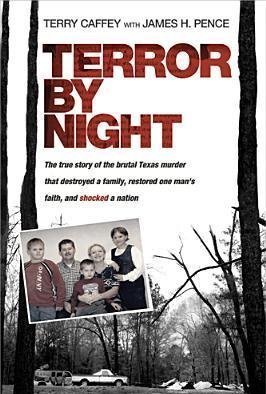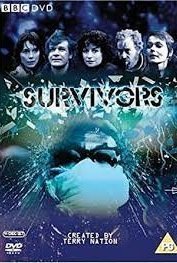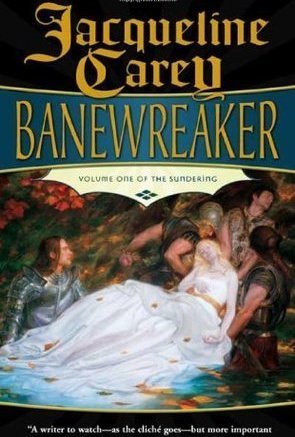Search
Search results
Terror by Night: the true story of the brutal texas murder that destroyed a family, restored one man’s faith, and shocked a nation.
by Terry Caffey with James H. Pence
Genre: True Crime, Christian, memoir
Rating: 5
My summary: Terry woke up one night and saw his daughter’s ex-boyfriend standing in front of him with a gun. Charlie shot him several times, killed his wife, then him and his friend brutally killed his two sons. They set the house on fire, thinking everyone was dead. Terry managed to escape by God’s life-preservation alone, and made the long trek through the woods to the neighbor’s house. All Terry wanted was to die and live in Heaven with his family. But he stayed alive through sheer will-power and God’s grace. He made it to the neighbor’s house, identified the killer, then colapsed, hoping never to wake up again.
He woke up.
and He has to live with what happened for the rest of his long life.
Terry suffers from suicidal thoughts and depression, overdoses on his drugs, and can’t sleep at night because of his fear.
But God can take any situation and turn it around… Terry went back to where his house was to have a heart-to-heart with God. Terry found something there that was preserved through weeks of rain and wind, and yet was still readable. It was a page from James Pence’s novel Blind Sight (though he didn’t know it at the time) and the first lines he read were these: “I couldn't understand why You would take my family and leave me to struggle along without them. And I guess I still don’t totally understand that part of it. But I do believe that You’re sovereign; You’re in control.” Terry eventually found out through some hard hunting that the character in the book who was speaking had lost his wife and children. It was as if that book was written about him.
Terry’s life changed drastically. He went into ministry, he got re-married… and he learned what unconditional love, forgiveness, and trusting God really meant.
Review: Terror by Night was an absolutely stunning book in every sense of the word. The awful things that happened to Terry, and how God restored him, are amazing. Terror by Night is like Job all over again. God took everything away from Terry—his family were dead and his house was charcoal. Terry suffered tremendously, but God restored him. God used him to restore other people. And God blessed him and gave back what he had taken away.
This book is a testimony of how God can take anything and turn it around for good, how everything that happens is His will, and how He is the one and only thing we can always trust.
A powerful message, an amazing testimony, a picture of forgiveness, uplifting, encouraging, and brutally beautiful, Terror by Night will stay with you for the rest of your life.
Content: 100% clean
Recommendation: I whole-heartedly recommend Terror by Night to everyone over the age of 14. Terror by Night is extremely emotional, several times I had to stop and put it down. There were also some disturbing images of how the children were killed. It would probably make you cry if you read it in one sitting. However, I still think everyone should read it.
by Terry Caffey with James H. Pence
Genre: True Crime, Christian, memoir
Rating: 5
My summary: Terry woke up one night and saw his daughter’s ex-boyfriend standing in front of him with a gun. Charlie shot him several times, killed his wife, then him and his friend brutally killed his two sons. They set the house on fire, thinking everyone was dead. Terry managed to escape by God’s life-preservation alone, and made the long trek through the woods to the neighbor’s house. All Terry wanted was to die and live in Heaven with his family. But he stayed alive through sheer will-power and God’s grace. He made it to the neighbor’s house, identified the killer, then colapsed, hoping never to wake up again.
He woke up.
and He has to live with what happened for the rest of his long life.
Terry suffers from suicidal thoughts and depression, overdoses on his drugs, and can’t sleep at night because of his fear.
But God can take any situation and turn it around… Terry went back to where his house was to have a heart-to-heart with God. Terry found something there that was preserved through weeks of rain and wind, and yet was still readable. It was a page from James Pence’s novel Blind Sight (though he didn’t know it at the time) and the first lines he read were these: “I couldn't understand why You would take my family and leave me to struggle along without them. And I guess I still don’t totally understand that part of it. But I do believe that You’re sovereign; You’re in control.” Terry eventually found out through some hard hunting that the character in the book who was speaking had lost his wife and children. It was as if that book was written about him.
Terry’s life changed drastically. He went into ministry, he got re-married… and he learned what unconditional love, forgiveness, and trusting God really meant.
Review: Terror by Night was an absolutely stunning book in every sense of the word. The awful things that happened to Terry, and how God restored him, are amazing. Terror by Night is like Job all over again. God took everything away from Terry—his family were dead and his house was charcoal. Terry suffered tremendously, but God restored him. God used him to restore other people. And God blessed him and gave back what he had taken away.
This book is a testimony of how God can take anything and turn it around for good, how everything that happens is His will, and how He is the one and only thing we can always trust.
A powerful message, an amazing testimony, a picture of forgiveness, uplifting, encouraging, and brutally beautiful, Terror by Night will stay with you for the rest of your life.
Content: 100% clean
Recommendation: I whole-heartedly recommend Terror by Night to everyone over the age of 14. Terror by Night is extremely emotional, several times I had to stop and put it down. There were also some disturbing images of how the children were killed. It would probably make you cry if you read it in one sitting. However, I still think everyone should read it.
Zac Clark recommended Crumb (1994) in Movies (curated)
Awix (3310 KP) rated And Soon the Darkness (1970) in Movies
Jul 31, 2020 (Updated Jul 31, 2020)
Slightly underpowered psycho-horror movie. Two nurses on a cycling holiday in France find themselves being stalked by a murderous psychopath, but who? There are various slightly suspicious French locals about the place (mostly played by Hungarians and Czechs, because all those foreigners are the same, aren't they), most of whom insist on not knowing any English. Merde!
Sticks admirably to genre conventions, up to a point, and it has a certain sort of bleak creepiness. However, it feels very long and slow - short on incident, certainly, also on warmth and humour (I know it's a horror movie, but you need some light and shade). Considering this is practically the very next thing the Avengers TV show team did next - the script is by renowned pulp storytellers Brian Clemens and Terry Nation - you could be forgiven for expecting something with more charm and imagination.
Sticks admirably to genre conventions, up to a point, and it has a certain sort of bleak creepiness. However, it feels very long and slow - short on incident, certainly, also on warmth and humour (I know it's a horror movie, but you need some light and shade). Considering this is practically the very next thing the Avengers TV show team did next - the script is by renowned pulp storytellers Brian Clemens and Terry Nation - you could be forgiven for expecting something with more charm and imagination.
Terry Nation's apocalyptic drama-adventure series came out of the same mid-70s interest in self-sufficiency that produced The Good Life, but also clearly owes a debt to George R Stewart's 1949 novel Earth Abides. A man-made virus devastates civilisation forcing the few who survive to rebuild; over the course of three series the programme deals with individual responses to the catastrophe, the characters coming together to build a community, and then an attempt to reconstruct something like a nation.
Many changes on both sides of the camera mean that Survivors is an inconsistent show, with nearly everyone agreeing the best episodes are all in the first season. This is not to say the first season is perfect or the others are not worth watching (though there are a few dud episodes). The best episodes are ones which mix character-based drama and big ideas - the capital punishment-themed Law and Order, in which the members of the community must decide what to do with one of their number they believe to be a murderer, is a particular highlight. Series anticipates Nation's Blake's 7 in the way a supporting character ends up as the de facto lead, in both cases a ruthless pragmatist becoming a very unconventional hero.
Criticisms that the show is middle class are somewhat justified; members of the working class are either comic relief or shotgun-toting menaces (trade unionists are also depicted as a menace). The low budget of the later episodes (most of which were made on VT rather than film) also shows. The second season can be a bit dull but the others are seldom less than interesting, and occasionally extremely good.
Many changes on both sides of the camera mean that Survivors is an inconsistent show, with nearly everyone agreeing the best episodes are all in the first season. This is not to say the first season is perfect or the others are not worth watching (though there are a few dud episodes). The best episodes are ones which mix character-based drama and big ideas - the capital punishment-themed Law and Order, in which the members of the community must decide what to do with one of their number they believe to be a murderer, is a particular highlight. Series anticipates Nation's Blake's 7 in the way a supporting character ends up as the de facto lead, in both cases a ruthless pragmatist becoming a very unconventional hero.
Criticisms that the show is middle class are somewhat justified; members of the working class are either comic relief or shotgun-toting menaces (trade unionists are also depicted as a menace). The low budget of the later episodes (most of which were made on VT rather than film) also shows. The second season can be a bit dull but the others are seldom less than interesting, and occasionally extremely good.
Mandy and G.D. Burkhead (26 KP) rated Banewreaker in Books
May 20, 2018
Shelf Life – Banewreaker Will Make You Feel Bad for Sauron
Contains spoilers, click to show
Very few fantasy fans can get away with admitting that they aren’t all that big into sweeping, high epic fantasy à la Lord of the Rings or the Pern stories or everything that Terry Brooks writes. Many non-fantasy fans, however, can point to these tales as examples of why they aren’t into fantasy. Like it or not, it’s hard not to see the latter group’s point, as a lot of high fantasy is riddled with confusing terminology, rehashed stories, and genre clichés. This is not to say that these stories are bad, per sé, just that they can easily turn off readers who aren’t in the right kind of crowd.
Banewreaker, the first book in Jacqueline Carey’s two-part volume The Sundering, will probably not change any opinions in this respect, then, as it’s sweeping high fantasy to the core. This, as it turns out, is both its greatest strength and its greatest weakness.
There are some reviews out there that laud Banewreaker as a masterful examination of subjective viewpoints in an epic fantasy turned into a human tragedy by a simple change of perspective. And they are absolutely correct.
There are other reviews, however, that call the book out as a heap of all of the stalest fantasy clichés piled one atop the other in a confusing and pretentious jumble with a shellacking of purple prose for good measure. And they are also absolutely correct.
Let me explain.
For starters, it would be inaccurate to say that this story is full of clichés. This story is clichés. This story is every familiar and used-up trope you would expect from a high fantasy, all of those details that have been done to death in thousands of other versions until almost nothing that happens seems original anymore.
This is what’s going to turn off a lot of people. But the thing is, Banewreaker has to be this way. It wants the reader to look at all of the things that they’ve come to expect from a fantasy epic and then, by shifting the narrative focus, realize that all of these beloved tropes are actually, when you think about it, tragic as hell.
In other words, it’s Lord of the Rings from Sauron’s point of view.
It’s not a riff, though. It’s not goofy like most of the stuff I go in for. It takes its subject just as seriously as the stories that it’s mirroring, and this is what makes the whole story ultimately so gripping and so moving.
The story starts out like many stories of this magnitude, with exposition stretching back to the Dawn of This Particular Creation. In this case, we have a protogenos world god named Uru-Alat who died and gave rise to seven smaller godlike beings called Shapers. First comes Haomane, who becomes the Lord of Thought and sets himself up as head honcho for this ensuing pantheon. Second is Arahila, the Basically a Love Goddess; and third is Satoris, whose purview was “the quickening of the flesh,” which is high fantasy speak for sexy times. Four more Shapers come after this who, for the sake of brevity, we’ll be glossing over.
To summarize the important godly exposition, the Seven Shapers set about shaping the world to the surprise of no one. Haomane creates elves (here called Ellyl, but if you’ve ever even looked at a fantasy, you know that they’re the elves here), Arahila creates humans, and Satoris doesn’t create anything because he’s busy hanging out with dragons and learning their wisdom. Satoris grants his fleshy quickening to the humans but not the elves, because Haomane didn’t want his elves to do that. Then Haomane decides he doesn’t want the humans to do that either, but Satoris refuses to take the gift away again. Conflict escalates, god wars ensue, and the world splits into two continents, with Satoris ostracized from his brethren on one and the remaining Shapers on the other. By the time the dust has settled, Satoris is scarred and burned pitch black, living in a mostly dead land thanks to Haomane’s wrath, but with a dagger in his possession that is the only weapon capable of killing any of the Shapers.
The story itself picks up thousands of years later, with Satoris as the Satan/Sauron stand-in living in a forbidding land surrounded by classically evil things like trolls, giant spiders, and insane people. Since Haomane is the head god, the rest of the world believes Satoris to be a terrible figure of evil and betrayal, while Satoris’s few allies know him as a pitiable and misunderstood figure who only ever wanted to honor his word and do right by his own sense of morality rather than the dictates of his elder brother god king.
From here the plot becomes the typical Army of Good vs. Army of Evil adventure, but with the protagonistic focus on Satoris and his allies. His trolls we see not as a mindless horde but as a simple, honorable people who happily serve their lord because he happily serves them right back. The mad individuals inhabiting his fortress are castaways from normal society with nowhere else to go. And the giant spiders just happen to live there and be bigger than normal, with no sinister intentions beyond that.
And just like that, by actually showing us the home life of the ultimate in evil fantasy tropes, we see how easily one side’s view of evil is another’s view of good. In doing so, Banewreaker becomes perhaps the first sweeping fantasy epic with no real bad guy, just two sides of an unfortunate conflict. Both sides have their likeable characters, both sides seem from their view to be in the right, and pretty soon you, as the reader, will stop cheering for either one, because whenever one person that you like succeeds it means that another person whom you also like is failing.
In fact, the closest thing that this story has to a clearly-labeled “evil” character is the sorceress Lilias, and even then, she’s not evil so much as a woman who has done some bad things for completely understandable reasons. Lilias, in fact, is one of the most pitiful characters in this whole saga of pitiable characters, with her fears and attachments closely mirroring those of most readers, only amplified by her immortality and magical powers. She is afraid of dying. She wants to be more in the grand scheme of things than just another man’s wife or another country’s momentary ruler, both of which would just be tiny moments in a long history. She likes her youth. She likes having pretty things and pretty people around her. And from her interactions with her dragon mentor and apparently only friend, Calandor, we see that she is also capable of intense affection and even love just as she is capable of indulging in self-centered self-interest that, if not particularly a good trait, is also one that she is not alone in possessing.
Banewreaker, then, is a story with a large cast of characters but very few actual heroes or innocents as well as very few outright villains, which is exactly what it sets out to be. Those who love it and those who hate it both seem to blame this quality in particular for their feelings. The biggest complaint leveled against it (that I have read, anyway) is that the people we should be rooting for do not deserve our sympathy, while the people we should be rooting against are more misguided and unwilling to see things in another light than deserving of our scorn.
This is true. But if it’s a flaw, it’s an intentional one. And if it makes you feel like you shouldn’t be cheering for either side at all in this conflict, that’s the point. This is a story of clichés, yes, but it has something that it needs to say about these clichés and, in doing so, about the subjective and impossibly nebulous quality of morality in general.
In short, here again is another fantasy story about the Forces of Good wiping out an entire nation dedicated to their “evil” enemy. And as the story points out, even if you believe in that cause, you’re still wiping out an entire nation of people. No way is there not a downside to that. Seeing things in a black-and-white morality just means crushing a whole lot of important shades of gray underfoot.
Whether or not you like Banewreaker, then, depends in large part upon how much you realize that Carey as an author is being self-aware. As someone who read and still hasn’t stopped being awed over her Kushiel series, I can’t claim complete objectivity in this area, because I came to Banewreaker already in love with her. I can say, however, that unless you have an intense and searing aversion to ornate and sweeping style, this book is worth any fantasy-lover’s time – especially if you’ve ever felt a pang of empathy for all of the poor villainous mooks that fantasy heroes tend to mow down without a thought because they were the wrong kind of ugly.
Banewreaker, the first book in Jacqueline Carey’s two-part volume The Sundering, will probably not change any opinions in this respect, then, as it’s sweeping high fantasy to the core. This, as it turns out, is both its greatest strength and its greatest weakness.
There are some reviews out there that laud Banewreaker as a masterful examination of subjective viewpoints in an epic fantasy turned into a human tragedy by a simple change of perspective. And they are absolutely correct.
There are other reviews, however, that call the book out as a heap of all of the stalest fantasy clichés piled one atop the other in a confusing and pretentious jumble with a shellacking of purple prose for good measure. And they are also absolutely correct.
Let me explain.
For starters, it would be inaccurate to say that this story is full of clichés. This story is clichés. This story is every familiar and used-up trope you would expect from a high fantasy, all of those details that have been done to death in thousands of other versions until almost nothing that happens seems original anymore.
This is what’s going to turn off a lot of people. But the thing is, Banewreaker has to be this way. It wants the reader to look at all of the things that they’ve come to expect from a fantasy epic and then, by shifting the narrative focus, realize that all of these beloved tropes are actually, when you think about it, tragic as hell.
In other words, it’s Lord of the Rings from Sauron’s point of view.
It’s not a riff, though. It’s not goofy like most of the stuff I go in for. It takes its subject just as seriously as the stories that it’s mirroring, and this is what makes the whole story ultimately so gripping and so moving.
The story starts out like many stories of this magnitude, with exposition stretching back to the Dawn of This Particular Creation. In this case, we have a protogenos world god named Uru-Alat who died and gave rise to seven smaller godlike beings called Shapers. First comes Haomane, who becomes the Lord of Thought and sets himself up as head honcho for this ensuing pantheon. Second is Arahila, the Basically a Love Goddess; and third is Satoris, whose purview was “the quickening of the flesh,” which is high fantasy speak for sexy times. Four more Shapers come after this who, for the sake of brevity, we’ll be glossing over.
To summarize the important godly exposition, the Seven Shapers set about shaping the world to the surprise of no one. Haomane creates elves (here called Ellyl, but if you’ve ever even looked at a fantasy, you know that they’re the elves here), Arahila creates humans, and Satoris doesn’t create anything because he’s busy hanging out with dragons and learning their wisdom. Satoris grants his fleshy quickening to the humans but not the elves, because Haomane didn’t want his elves to do that. Then Haomane decides he doesn’t want the humans to do that either, but Satoris refuses to take the gift away again. Conflict escalates, god wars ensue, and the world splits into two continents, with Satoris ostracized from his brethren on one and the remaining Shapers on the other. By the time the dust has settled, Satoris is scarred and burned pitch black, living in a mostly dead land thanks to Haomane’s wrath, but with a dagger in his possession that is the only weapon capable of killing any of the Shapers.
The story itself picks up thousands of years later, with Satoris as the Satan/Sauron stand-in living in a forbidding land surrounded by classically evil things like trolls, giant spiders, and insane people. Since Haomane is the head god, the rest of the world believes Satoris to be a terrible figure of evil and betrayal, while Satoris’s few allies know him as a pitiable and misunderstood figure who only ever wanted to honor his word and do right by his own sense of morality rather than the dictates of his elder brother god king.
From here the plot becomes the typical Army of Good vs. Army of Evil adventure, but with the protagonistic focus on Satoris and his allies. His trolls we see not as a mindless horde but as a simple, honorable people who happily serve their lord because he happily serves them right back. The mad individuals inhabiting his fortress are castaways from normal society with nowhere else to go. And the giant spiders just happen to live there and be bigger than normal, with no sinister intentions beyond that.
And just like that, by actually showing us the home life of the ultimate in evil fantasy tropes, we see how easily one side’s view of evil is another’s view of good. In doing so, Banewreaker becomes perhaps the first sweeping fantasy epic with no real bad guy, just two sides of an unfortunate conflict. Both sides have their likeable characters, both sides seem from their view to be in the right, and pretty soon you, as the reader, will stop cheering for either one, because whenever one person that you like succeeds it means that another person whom you also like is failing.
In fact, the closest thing that this story has to a clearly-labeled “evil” character is the sorceress Lilias, and even then, she’s not evil so much as a woman who has done some bad things for completely understandable reasons. Lilias, in fact, is one of the most pitiful characters in this whole saga of pitiable characters, with her fears and attachments closely mirroring those of most readers, only amplified by her immortality and magical powers. She is afraid of dying. She wants to be more in the grand scheme of things than just another man’s wife or another country’s momentary ruler, both of which would just be tiny moments in a long history. She likes her youth. She likes having pretty things and pretty people around her. And from her interactions with her dragon mentor and apparently only friend, Calandor, we see that she is also capable of intense affection and even love just as she is capable of indulging in self-centered self-interest that, if not particularly a good trait, is also one that she is not alone in possessing.
Banewreaker, then, is a story with a large cast of characters but very few actual heroes or innocents as well as very few outright villains, which is exactly what it sets out to be. Those who love it and those who hate it both seem to blame this quality in particular for their feelings. The biggest complaint leveled against it (that I have read, anyway) is that the people we should be rooting for do not deserve our sympathy, while the people we should be rooting against are more misguided and unwilling to see things in another light than deserving of our scorn.
This is true. But if it’s a flaw, it’s an intentional one. And if it makes you feel like you shouldn’t be cheering for either side at all in this conflict, that’s the point. This is a story of clichés, yes, but it has something that it needs to say about these clichés and, in doing so, about the subjective and impossibly nebulous quality of morality in general.
In short, here again is another fantasy story about the Forces of Good wiping out an entire nation dedicated to their “evil” enemy. And as the story points out, even if you believe in that cause, you’re still wiping out an entire nation of people. No way is there not a downside to that. Seeing things in a black-and-white morality just means crushing a whole lot of important shades of gray underfoot.
Whether or not you like Banewreaker, then, depends in large part upon how much you realize that Carey as an author is being self-aware. As someone who read and still hasn’t stopped being awed over her Kushiel series, I can’t claim complete objectivity in this area, because I came to Banewreaker already in love with her. I can say, however, that unless you have an intense and searing aversion to ornate and sweeping style, this book is worth any fantasy-lover’s time – especially if you’ve ever felt a pang of empathy for all of the poor villainous mooks that fantasy heroes tend to mow down without a thought because they were the wrong kind of ugly.




